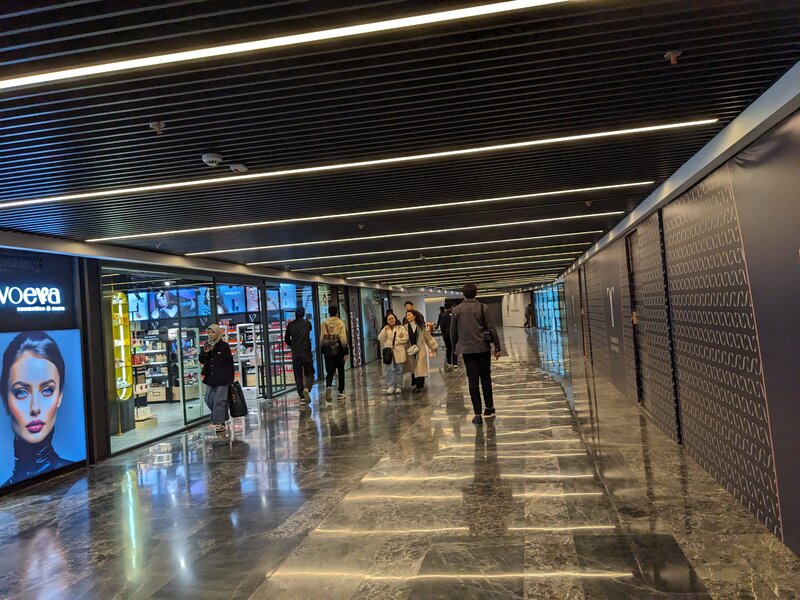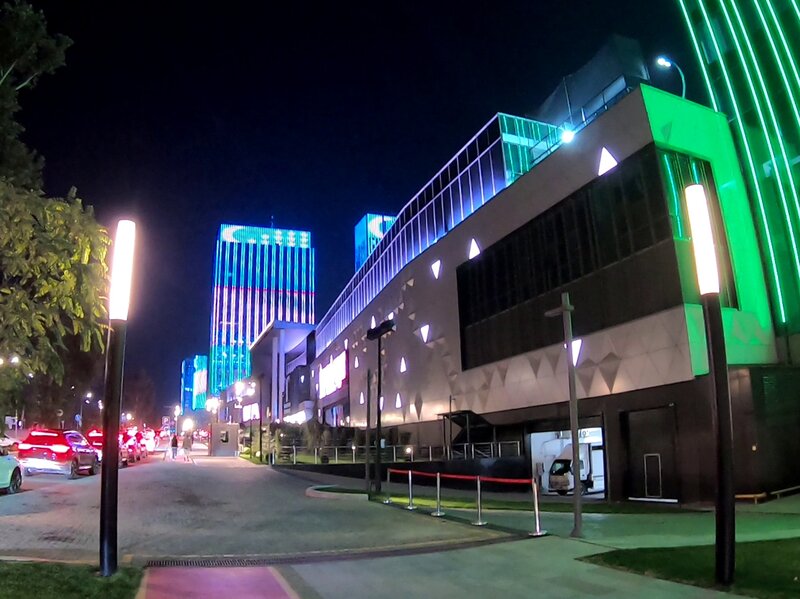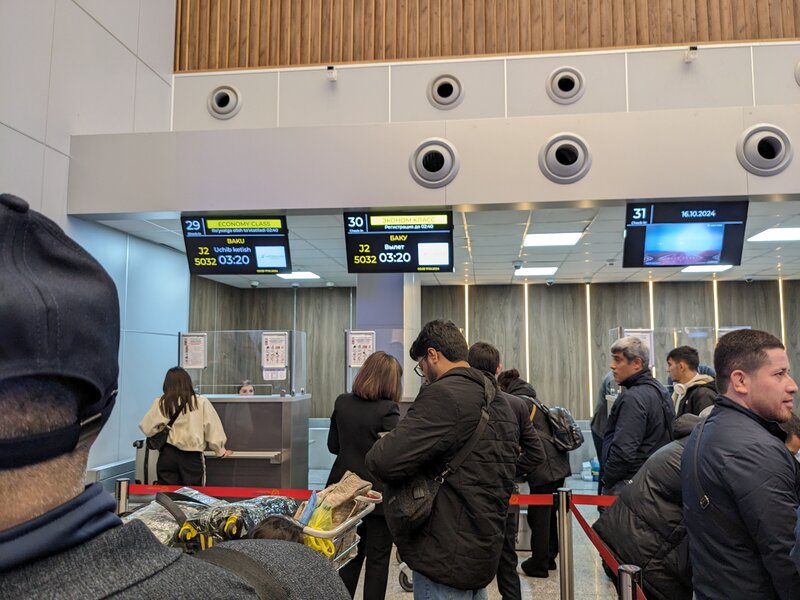About half an hour had passed at the desolate bus stop near the edge of the town wrapped in the cold of night. I began to wonder whether buses were running at all or whether the place was even a bus stop. Just as I was beginning to lose faith, a couple of local Uzbek youths joined me in waiting for the same bus. I told them I had come to their town in search of the Koryo-Saram history, but it didn’t seem to interest them much. It was equally possible that they just didn’t understand my Russian. They were an energetic and patriotic bunch. “Otkuda?” (“Where are you from?”) one of the youths asked. When I told them I came from Australia, they bantered that Uzbekistan was the number one country and it had the best athletes and armies. A few minutes later, a bus arrived and we all hopped onto it. As the darkness streamed past the bus window, I felt that my search for a piece of Koryo-Saram history had come to an end. The many months I had spent learning Russian felt worthwhile. Although the trip hadn’t quite gone the way I had imagined, it had allowed me a glimpse of an unprocessed reality. I left the once-mysterious Politatel behind feeling more lighthearted than bittersweet.
The bus crossed the Chirchiq River and dropped me off at the Qu’yliq station at around 7:30PM. It was still too early to go to the airport because my flight wasn’t leaving until 3:20AM. I decided to head to the center of Tashkent to see what it was like at night. A stylish subway car took me from Qu’yliq to the contemporary Technopark station. There I transferred to the Soviet-built subway line and headed to Alisher Navoiy, which was in a fancier part of Tashkent. The old subway car, whooshing and screeching, crossed the underground of Tashkent through the familiar stations in a hurry. It rushed through the brutalist columns and unvarnished walls of Mashinasozlar, the ornate astronaut murals at Kosmonavtlar, and eventually arrived at Alisher Navoiy with its awe-inspiring arches and domes adorned with Islamic-inspired traditional styles. Not far away from all the splendors of the half-century-old Soviet architecture, there was a slick tunnel that led to a shopping mall. The scenery couldn’t have changed more quickly as I stepped into it.

The half-century old Soviet monumentalist architecture suddenly gave way to modern and trendy storefronts.
The magnificent structures and traditional patterns abruptly gave way to luxurious and trendy storefronts with glossy windows. The old had suddenly been replaced by the new and the modern. Everything there was in stark contrast not only to the adjoining station, but also to the things I had seen in the outskirts of Tashkent that day. Walking on the bright marble floor, I wasn’t even sure whether I was in the same city anymore. Everything in that place was as expensive as it looked fancy. My small hope of maybe buying a warmer jacket before going to the Caucasus evaporated quickly as I checked the price tags inside those stylish stores. Who could afford those clothes was a mystery, as they easily cost many times my train ride from Bukhara to Tashkent. The mall was busy though, and even all the pricey restaurants were packed with diners.
Strolling past those swanky storefronts with my huge backpack and beat-up clothes, I couldn’t help but feel a little out of place. Everyone around me looked so sharp and fresh compared to me, who hadn’t even had a chance to take a shower or shave since leaving Samarkand almost two days earlier. Priced out of purchasing a warm jacket, I walked out of the posh shopping mall and found myself on even fancier streets filled with stylish foreign cars. There were some interesting things to check out–a nice park with sculptures and nearby buildings brightly illuminated with the pattern of the Uzbekistan flag. But it was too cold to be walking around, and I was kind of exhausted from being out all day since arriving in Tashkent at 6:00AM that morning. It was much harder to explore the city all day and then take a red-eye flight the next morning without any accommodation. Not knowing where to go was as mentally draining as the physical fatigue. Since it was too late and too cold to explore other parts of Tashkent, I figured I’d just have to wait it out at the airport until my flight. I rushed to the nearby Pakhtakor station to escape the cold and got on a subway to the airport.

Feeling like an odd duck, I walked out of the swanky shopping mall, only to find myself among even fancier streets.
It was already 9:00PM when a bus and subway ride finally took me to the airport. The check-in area was full of people and there was nowhere to sit down or rest. Since my flight to Baku wasn’t even showing on the boarding screen, there was nothing to do but stand around awkwardly. Then, I remembered that I hadn’t eaten anything since the Koryo-Saram restaurant at Kim Pen Khva Kolkhoz. My original plan was to eat at that shopping mall near Alisher Navoiy but I ended up not having anything because all the options seemed unnecessarily upscale and pricey. All I wanted was some simple shashlik like the ones I had a few days ago before leaving Tashkent for Samarkand. But there weren’t many restaurants at the airport, let alone any that served shashlik. So I took a cab to a nearby neighborhood about ten minutes away. But the shashlik place I wanted to go to was permanently closed when I got there. It was too freezing to find another cab or a restaurant. So I just had dinner at a nearby place which turned out to be one of the most expensive meals in the trip, costing 149,000 sum ($17.50). It was more than a night in a hostel, but I was a bit too cold and exhausted to think about all that.
When I came back to the airport, the place had only become more crowded despite how late it was getting. With some luck, I managed to snag a middle seat on a bench near the glass window overlooking the parking lot outside. By this time, my flight to Baku was at least showing up on the boarding screen, but the check-in time had still not been announced. I tried to reflect on my time here in Central Asia, but my mind was preoccupied with the looming challenge. I only had twelve days left until I had to be in Seattle, meaning that I had even fewer days left to reach Dublin.
Was it even possible? I didn’t know for sure, but I thought that I might stand a chance if I could get to Istanbul in the next few days. Maybe the railway system in Europe would be straightforward to navigate. I tried to think about how I would even get to Istanbul in such a short time, but I had no clear answer. After a while, the noise of the crowd faded into the background and I fell into a light sleep. For the next few hours, I kept sleeping uncomfortably for around twenty minutes, then waking up for a few minutes, checking the boarding screen with drowsy eyes. It was around midnight when an Uzbek babushka woke me up with a slight nudge. I didn’t understand what she was saying, but it sounded like she wanted the seat. I looked around and realized that the airport was still full and the check-in for my flight seemed like it was going to open pretty soon. I offered the seat to the babushka and walked around the airport like a zombie. Soon, the check-in started for the 3:20AM flight to Baku and a massive line began to form.

Despite the fatigue, my heart still pulsed with excitement and conviction that I just might make it to Dublin on time.
The lines at check-in and immigration moved slowly, and I followed along in a daze. I was tired, but the exciting prospect of finally making my way into the Caucasus kept sleep away. When I left China a few days earlier to cross into Central Asia, I hadn’t even known it was possible to get to this point. It felt almost surreal to be concluding my trip in Central Asia. I knew that there was no room for a vague hope or enthusiasm because the road ahead was still not clear, but my naive heart started pulsing with excitement and conviction.
When I boarded the plane, a regret that had long lain dormant in my mind reared its head again. It would have been more interesting to stick with the hard way and cross the Caspian Sea by boat or travel around it on land. Although I knew my current constraints didn’t allow such luxury, the thought of “what if” still tasted bitter. I consoled myself that I would do it next time. Who knows? Maybe I would one day return home from Seattle. As soon as I sat down, I fell asleep and didn’t even notice the plane taking off. I slept like a baby, without the faintest idea that among the passengers was a friend with whom I would share an unexpected trip later.